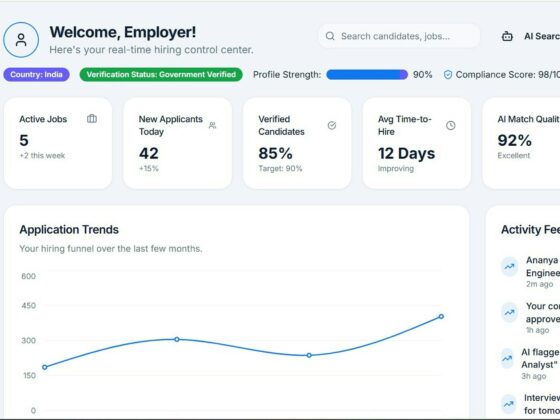
Managed Service Providers (MSPs) and Local Service Providers (LSPs) sit at the heart of today’s digital infrastructure, ensuring seamless connectivity across hospitality, multifamily housing, and commercial spaces. Yet beneath the surface, MSPs are grappling with a complex mix of technological and operational challenges. Two recent interviews I conducted—one with Sean Gorman, CEO of Safety NetAccess, and another with Ed Fox, CTO of MetTel—shed light on the evolving landscape for MSPs and the friction points that shape their strategic priorities.
What makes these conversations especially interesting is the contrast between the two perspectives: MetTel focuses heavily on enterprise and government clients, while Safety NetAccess is rooted in hospitality and residential verticals. Yet both face strikingly similar challenges, especially around vendor flexibility, AI adoption, and the need for specialized talent.
Fragmented Infrastructure, Fragmented Tools
A recurring theme in both conversations was the growing complexity of managing diverse network environments. For Gorman, whose company supports networks in all 50 U.S. states and across Canada, the challenge isn’t just about geography—it’s about interoperability. With multiple vendors in play, including Ruckus, Aruba, and Shasta, consistency is hard to maintain. “Everybody’s looking for that single pane of glass,” he explained.
At MetTel, Ed Fox described a similar operational reality: “We manage a lot of different vendors. But when we’re doing a bespoke, unique network, we try to keep it to a few.” The issue, he explained, is that a limited vendor pool helps streamline automation and operations—but customer demands often require flexibility. “We’re technically astute in dealing with those, but we prefer, on our side as a service, to have a small list of vendors.”
Vendor Lock-In: A Strategic Liability
Vendor lock-in remains a pain point, especially when service providers need to deliver tailored solutions. While many vendors promote end-to-end integration, MSPs are wary of being boxed into inflexible ecosystems. “We do Fortinet, we do Meraki, we still do Adtran,” said Fox. “We prefer to fine-tune our operations and automations around a few, but we often get dragged into different Wi-Fi networks based on customer needs.”
This balancing act means MSPs often carry the burden of supporting incompatible hardware and management platforms, undermining efficiency. “We can’t always stick to the plan, because we’re a solutions provider,” Fox added.
Scaling Without Headcount
Automation has become a survival strategy for growing MSPs. “We’ve grown double digits for 17 or 18 years in a row,” Fox said. “Keeping up with that growth and making sure we can follow up with new solutions without adding more and more people—that’s one of my biggest challenges.”
MetTel’s use of AI and machine learning dates back to 2016, well before today’s LLM hype. “We had agentic AI way back when,” he said. “We have agents that sit and work in our queues—customer service queues, incident queues—right alongside our humans.” This approach has helped MetTel maintain a lean workforce while scaling operations.
Lost in Translation: The Multifamily Challenge
Gorman described a cultural and communication gap between MSPs and multifamily clients. “Property owners don’t speak our language,” he said. “They speak finance. NOI. Interest rates.” That misalignment often leads to friction in project execution and ROI measurement.
MetTel encounters similar dynamics in government and large enterprise sectors. “With our biggest clients, we act as their trusted advisor,” said Fox. “I’m always out there looking at new technologies, listening to customers, figuring out what fits. That’s become harder and harder.”
The Convergence Horizon: Wi-Fi Meets Cellular
One of the more promising frontiers for MSPs is the convergence of Wi-Fi and cellular networks. MetTel is already investing in this space with the launch of its own mobile core. “We’re really excited about what the WBA is doing, particularly with the GSMA and 3GPP discussions,” Fox said. “We do a lot of mobility, a lot of fixed wireless access, a lot of IoT—and we do that as a managed service.”
The goal is seamless handoff between networks and simplified authentication. “We’re a partner with Starlink as well,” Fox added. “If we can authenticate through a 3GPP mechanism—from satellite to mobile to Wi-Fi—we can provide a unified service whether you’re in a truck depot or out in the wild.”
AI and Security: The Twin Pillars of MSP Futures
When asked what technology he’d wish for if he had a magic wand, Fox answered with clarity: “More AI everywhere and LLMs on everything.” But he also pointed to cybersecurity as a critical area for future investment. “The security vectors are growing like crazy,” he said. “We’re in the middle of it—managing communications and networks. I’d like to be more focused on that.”
This mirrors Gorman’s view that AI holds promise but also financial risk. “It sounds great on paper,” he said, “but the financial model doesn’t always work.” For AI to truly transform MSP operations, it must be accessible and ROI-positive—something still out of reach for many mid-sized providers.
Conclusion: Adaptation is the New Advantage
Despite the pain points, optimism remains strong. MSPs are playing a more strategic role than ever before, not just deploying infrastructure but architecting future-proof digital experiences. With advancements in AI, the promise of converged networks, and heightened demand in multifamily and government sectors, MSPs are redefining their value.
As Fox summed it up: “The CTO’s job isn’t just technical anymore. You need an analyst and a developer in every department just to keep up.” In that environment, agility, specialization, and vision aren’t just competitive advantages—they’re requirements for survival.








